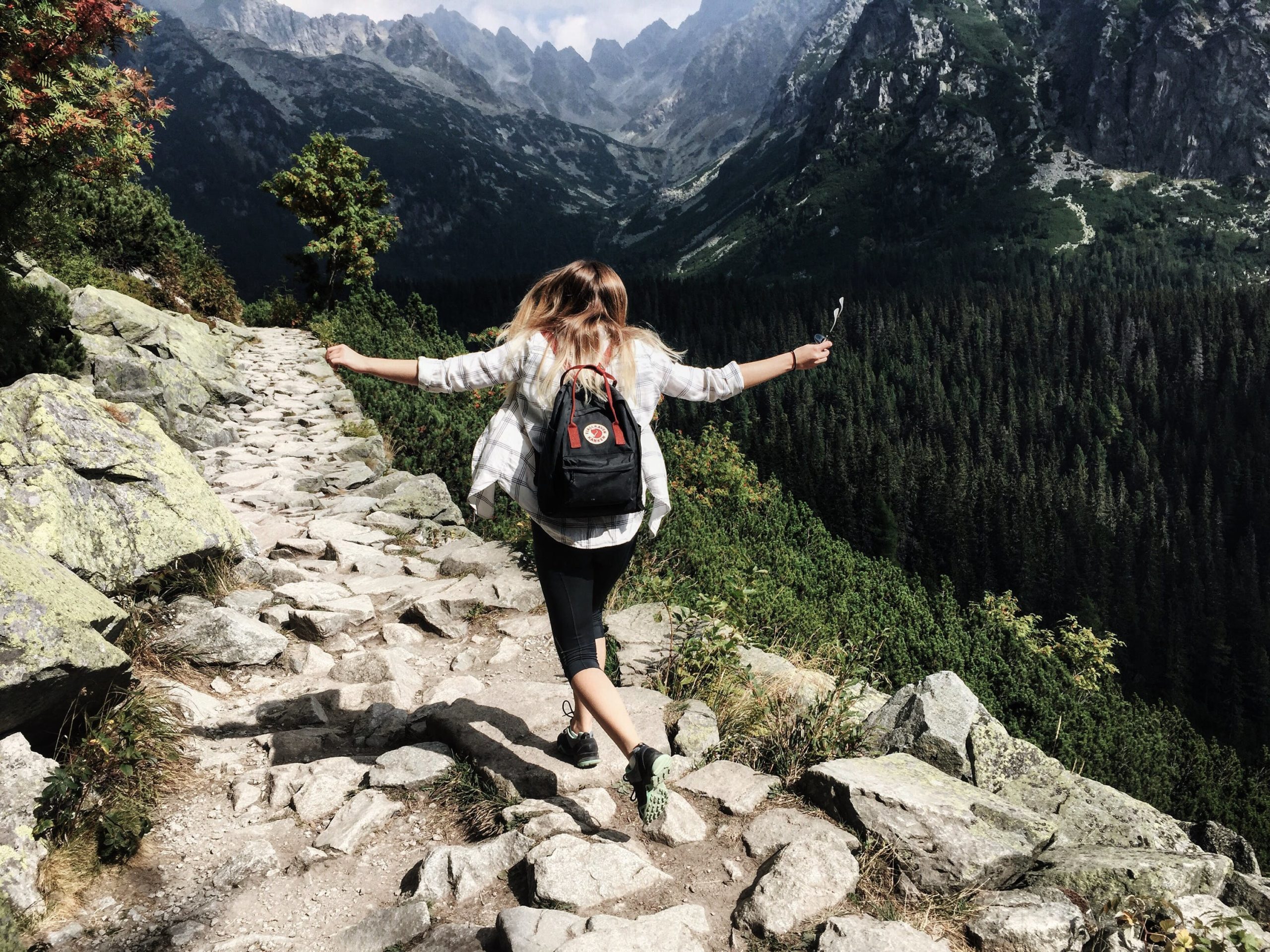A couple of weeks ago, I said that I was going to write a pair of posts: one about conserving energy when you travel and one about overcoming anxiety when you travel. Those are the two things that most often get in the way of my just running straight ahead and doing everything I want to. Last post was the one about energy, so today we’ll talk about anxiety management. If you have things that get in your way and make it hard for you to travel or to enjoy it as much as you want to when you do, let me know in the comments and I’ll try to write about those, too! I’m just starting with my own obstacles because that’s what I’m most familiar with.
Getting out of your comfort zone is, in my opinion, part of what going to faraway places is for. It’s also not easy. Most people’s brains resist doing things they’re not used to — in fact, it’s actually an evolutionary protection. Your brain uses up a massive percentage of your body’s total energy budget, and it also uses up far more for everything new that you do, compared to the things it does by habit. So, by attempting to make a habit out of everything you do halfway regularly and then stick to those habits instead of reaching out for new stuff, your body is really conserving energy… something which, once upon a time, might have prevented our ancestors from starving.

However, those of us who are privileged enough to be traveling the world for pleasure are also privileged enough that we probably don’t need to worry about starvation. So we can afford to get out of our comfort zone and try new things, and there are a lot of good reasons for doing it. My favorite comes from yet another neurological effect: when you do new things a lot, your life seems longer.
Your brain is wired to remember the things it’s not used to, much more than the things it is. When something becomes a habit, it also goes into the “do not need to recall” file, which is most of why it’s so easy to forget whether or not you locked the door on the way out, or took your medicine already. Your brain didn’t bother to retain those things, because they were a known quantity. But I remember an incredible amount of detail from the hour that I spent with mountain gorillas in Uganda, because I had never done anything like that before.
When you spend a lot of your year doing new things, therefore, your brain remembers a lot of detail and you can look back at that year and it feels long — plenty of days you can recall individually, and filled with lots of stuff, because you have all those memories. When you spend your year doing almost entirely things that are habit, on the other hand, you forget most of it, and even though you lived through exactly the same number of days as if you’d been doing new things with them, you won’t remember most of them. That’s the kind of situation in which you look back and wonder where the years went.
Dunno about you, but that’s not what I want for my life. So even though my brain tries really hard to keep me in my comfort zone by throwing anxiety at me, I still try to go out and do things that I’m going to remember.
All that is the why. Now we get to how.
Five ways to sidestep your anxiety
1) Lock It In
Look, the sunk cost fallacy is a fallacy… but we wouldn’t have to be warned about it if it weren’t a pattern the human brain tends to fall into. So make it work for you. If there’s something you want to do but it makes you nervous, book it in advance and put the money down. Preferably in a format which gives you limited opportunity to cancel without penalty. Oh, you still may want to hedge your bets a little, depending on how much money is involved, because there can be other reasons you might need to cancel besides being scared to go ahead with it. But you want to make cancelling without an objective necessity difficult enough that, whenever your brain starts thinking, “What was I thinking? I can’t do that; it’s hard, scary, uncomfortable, and I’m freaking out just thinking about it,” you will be able to answer it with, “Oh, but if I quit I’ll have wasted what I already put into it. I’ve done so much to set up for this. I might as well follow through.”
It sounds silly in the abstract, but it’s very much the way brains actually work in the moment. Since a lot of the reason we get nervous about new things in the first place is a quirk of the brain, we might as well use a different quirk to overcome it.
2) Learn Why It’s Safe
Despite the tendency to get anxious about things we’re not used to, the fact is that most activities we typically do on vacation are set up to be very safe in practice. Having a visitor get killed or even hurt is a nightmare that would destroy almost any tourism-related business. Even the countries that you visit can’t afford to have regular incidents involving tourists… they need visitors to keep arriving, bringing their money with them. So they do everything they can to protect us. The blunt truth is that you probably have a lot more people actively concerning themselves with your safety when you’re traveling than you do at home. (The one possible exception is if your idea of vacationing involves a great deal of solo wilderness travel… and in that case you’re probably not the type who tends to anxiety in the first place; at least not about that.)
All this means that the activities which look frightening are probably in fact set up to be as safe as humanly possible. I find that the more I know about those safeguards — what they are and why they are effective — the less scared I will be about the activity in the first place. That’s why, while I was riding the African Aircopter up to the Impenetrable Forest, I set myself to figuring out what the heck they were doing that made sure the sled wouldn’t actually fall. Once I understood how it worked, and why it was much safer than it originally appeared, my anxiety mostly went away.
3) For Social Anxiety, Turn the Tables
I personally tend to get scared primarily about physical dangers. But a lot of people I know are more afraid of screwing up the local manners than they are of falling off the side of a mountain or riding a high zipline through the forest canopy.
The overwhelming majority of the time, of course, it’s easy. You’ll be told anything that’s really important, and almost everybody is kind and forgiving when a foreigner is clearly doing their best. You know that, I know that, we all know that. It doesn’t stop it from producing anxiety.
So flip the story in your mind, when you start to chastise yourself for doing something wrong or to worry that you might do something wrong. The old classic, “How would you feel if someone else did that around you?” is a classic for a reason: it works. If you can visualize what you’d feel like from their end of the exchange, you’ll usually realize that you’d either totally not notice whatever it is you’re worried you might do, or else you’d feel kindly appreciative of the effort, and totally okay with the lack of success. Try really hard to hold onto the awareness of what that would feel like; it translates into plenty of ammunition to fire against your brain when it tries to tell you that it would be a catastrophe for you to do X thing wrong, whatever X might be.
4) Mix it Up
This is a close analogy to what I said about energy: don’t do the unnerving things all at once. Take a day of easy, relaxing activities before or after you do that high-canopy zipline experience (unless, of course, high canopy zipline experiences don’t stress you). Especially after… sometimes relaxing days before a scary experience can give you too much time to think about it, in which case you may want to go with low-stress but busy for the day before. But after, it can really help to have time to absorb what it actually felt like, which is often much less terrible than you thought it might feel like. That not only helps you process and enjoy more thoroughly what you just did, it can also help you remember on another occasion what it felt like to have a thing that was scary beforehand actually go okay and feel good afterwards.
5) Decide to Say Yes
Sometimes, taking the decision out of your own hands can help make it easier for you to do things that make you nervous. I have had success by taking short periods during any given trip (or even when I’m at home) in which I commit ahead of time to saying yes to any opportunity to do something new that I’m offered. I don’t let myself have the choice, because if I had the choice, my nerves might push me into saying no. So I decide ahead of time… and then, knowing that I’ve already made my decision, I say the “yes” out loud immediately, before I can second guess. After that, I’m committed in public, and it becomes harder to back out. I usually find that I’m glad I did the things, when I’m finished. (I rarely do this for an entire trip, though, because saying yes to everything can get exhausting, and I need some time to recharge.)
What are your favorite ways to make yourself get out of your comfort zone and do things you might otherwise find a little scary? Tell us in the comments!


Leave a Reply